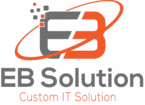Microsoft 365 is one of the best collaboration/productivity tools that the market has to offer. It provides users with great scalability, supports remote work, and facilitates seamless communication between colleagues. Microsoft’s security is also solid due to many security features which are being developed and updated with each iteration of Microsoft’s software.
But this doesn’t mean you’re impervious to cyberattacks. Should your business fall victim to hackers, the consequences can be dire, ranging from operational disruptions to severe reputational damage.
The only way to protect yourself from hackers is to take your Microsoft 365 data protection is in your hands. In this article, we will list 10 security measures that will shield your Microsoft 365 from data leakage, unauthorized access, and malware.
10 EFFECTIVE SECURITY MEASURES
#1 – MULTI-FACTOR AUTHENTICATION
Microsoft users have just one method of verifying their identity – username and password.
Unfortunately, many people don’t follow robust password protocols. If you’re one of them, you’re exposing your organization to intrusions.
That’s where multi-factor authentication (MFA) comes into play.
It can boost your Microsoft 365 security with one-time passwords (OTP) and other factors to verify a user. Best of all, this measure is easy to apply.
However, enabling MFA is only half the work. The second half is to activate “Security Defaults”, a Microsoft feature that enforces MFA in each administrator account.
Additionally, would be nice to implement MFA in all accounts without administrator permissions. Even these accounts can be a danger to all the services and apps in your ecosystem.
#2 – SESSION TIMEOUTS
Many employees fail to log out of their accounts and lock their mobile devices or computers. If hackers get their hands on an employee device they could get unlimited access to enterprise accounts, enabling them to compromise all your systems and data.
Session timeouts will automatically log users out of their accounts after a certain inactivity period. That means hackers can’t take over their devices and access sensitive information.
#3 – ADVANCED THREAT PROTECTION
Advanced threat protection (ATP) is a robust solution that recognizes and prevents some of the advanced threats that usually can bypass modern antivirus solutions and firewall defenses.
ATP notifies you about attacks, the severity, and the method that stopped them. Also, ATP grants access to a database that receives real-time updates, allowing users to understand the threats and integrate the data into their analysis. It’s especially effective at preventing and analyzing phishing attempts.
ATP is built on machine learning algorithms and a massive database of suspicious sites associated with malware and phishing attempts.
#4 – POLICY ALERTS
Policy alerts can safeguard against data leaks while educating your team on safe data sharing methods.
Microsoft 365 lets you establish a policy for notifications. For example, you can send your employees tips on sending sensitive information whenever they’re about to send a message to contact outside your trusted network.
#5 – MOBILE ACCESS
Your team often uses smartphones to access work email, contacts, documents, and calendars, especially if they work remotely. So, securing their mobile devices should be on the top of the list of your priorities when protecting your data.
The best way to do so is to install official Microsoft 365 mobile management features. Those features will let you manage your security policy, permissions, restrictions, and wipe crucial information from a device if it was stolen or lost.
#6 – LEGACY PROTOCOLS
Deactivating authentication of legacy protocols is generally a very good idea. It’s because they don’t support some of the security features in Microsoft 365 that reduce the chances of intrusion. This can make them perfect targets for adversaries who are trying to target your organization.
However, before disabling legacy authentication check if your team needs it for older Microsoft 365 accounts. The good news is that you can still restrict access to users who don’t need this protocol.
#7 – ROLE-BASED ACCESS CONTROL
Access management is a convenient security feature that can limit the flow of private information across your business. It allows you to establish which users can access which data in your company.
For example, you can minimize data leaks by preventing ordinary team members from reading executive-level files.
#8 – UNIFIED AUDIT LOG
Unified audit log (UAL) includes logs from multiple Microsoft services, it can be Azure AD, SharePoint Online, OneDrive, Microsoft Teams, and others. Enabling it can give your administrators insight into the quality and quantity of malicious activity and actions that violate your organizational policies.
Additionally, try to incorporate your logs into an existing SIEM (Security Information and Event Management) tool. Doing so enables you to connect logs with current log monitoring and management solutions to reveal abnormal activity.
#9 – ENCRYPTED EMAILS
Encrypting data is often considered the last resort when dealing with data breaches. But if cyber attackers got access to your emails, specific encryption tools can make them completely unreadable. That’s why email encryption is something worth looking into in our opinion.
This feature is essential for Microsoft 365 users who share emails and files regularly.
#10 – EMPLOYEE TRAINING
Measures #1-9 are very effective, but they may close to nothing or even harm your company if you leave your employees unaware or untrained. In fact, human error is the cause of 90% of data breaches.
One of the best ways to prevent security breaches in your business is to educate your employees. Raise their awareness of potential threats and guide them on how to address them.
This is especially important if you are constantly recruiting new employees. Make sure that they undergo in-depth security training before giving them access to sensitive data and organizational devices.
DON’T LEAVE YOUR BUSINESS’S DATA PROTECTION TO CHANCE
Microsoft 365 offers a bunch of intuitive and convenient tools that make your experience so smooth that you may even forget about protecting your data.
However, you’re taking a huge risk in doing so, as it leaves your system open for cyber attacks.
With that in mind, applying the defense mechanisms mentioned in this article will dramatically decrease security threats to your business.
We can help you further ensure your security when using Microsoft 365 apps. Contact us for a 10-15-minute chat that’s obligation-free. Let’s discuss how you can keep cyber threats at bay.
EB Solution is a trusted IT service provider in Toronto, Canada. We provide Microsoft 365 support and employ the latest security measures in the industry. On top of that, we are experts in network security, computer security, disaster recovery, and VoIP telephony. Thinking about hiring a new IT services company for your Toronto business? Call the team at EB Solution, we are a top-rated IT company in Toronto.


